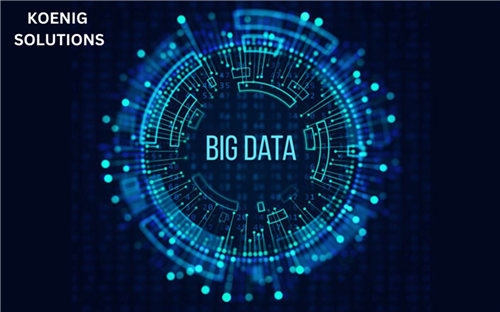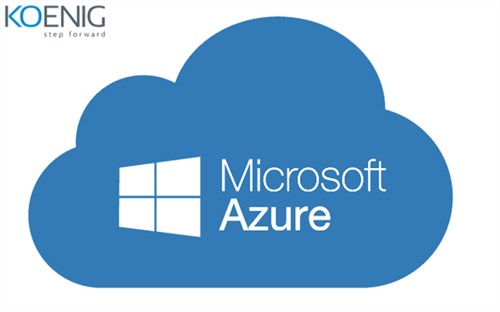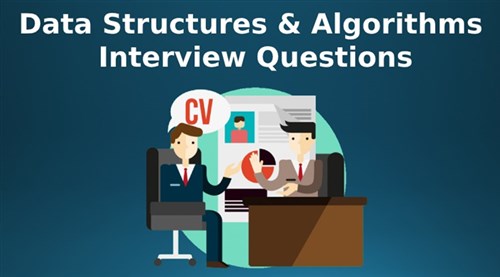
The world today is almost entirely data-driven. The digital data created is also growing very fast, almost completely doubling within two years at a time. This has completely changed how we live, how we interact with machines and people and how we perceive the world around us. The primary focus of the data industry is figuring out how to process and analyse the huge volumes of data generated every day. The different key terms you hear in a conversation about data processing are
- Data Science
- Data Analytics
- Big Data
IT experts agree that we live in the age of Big Data. Data Science and Big Data are two technical terms that are commonly used in conversations around the benefits and management of data and data-driven strategies and decision-making. This growing trend of using data to understand audiences better has created job opportunities and entire career paths for interested professionals. To match this growing demand for professionals with the data skills and knowledge required, there are several data science, analytics and Big Data certification courses that can help candidates hone their skills and boost their careers.
To understand how data and analytics can be managed and implemented, we need to understand the different roles and goals fulfilled by Data Science vs Data Analytics vs Big Data and the differences between them.
What is Data Science:
When looking at data, there are large volumes of structured and unstructured data available. Data Science is made up of everything responsible for the cleansing, analysis and preparation of data. It is a combination of mathematics, problem-solving, statistics, programming, ingenious ways of data collection, data alignment, preparation and cleansing. You also should be able to see things differently and understand various techniques for the extraction of information and insights.
What is Big Data:
When volumes of data are too large, they can’t be processed or analysed by traditional applications used for lesser quantities of data. This large quantity of data is known as Big Data. Big Data processing starts with non-aggregated raw data which cannot possibly be stored within a single computer’s memory. It is technical jargon that describes an enormous collection of structured and unstructured data. Big Data analysis helps to derive insights and information that can help businesses and organisations to make better business moves and strategic decisions. According to Gartner, Big Data can be defined in the following way:
‘Big data is high-volume, and high-velocity or high-variety information assets that demand cost-effective, innovative forms of information processing that enable enhanced insight, decision making, and process automation.’
What is Data Analytics:
Data analytics can be defined as the scientific methodology used to examine raw data to derive insights and find useful information. It is a thorough process where an algorithm or mechanical process is applied to draw insights. This process is also used to find meaningful correlations and enables data analytic organisations and companies to get useful information that allows them to make informed decisions. Data analytics also allows the verification and disproving of data models or theories. Data analytics lays focus on inference, the methodology that derives conclusions on the basis of what a researcher might already know.
Applications of Data Science, Big Data and Data Analytics
Now that we know what the three terms mean, let us look at the applications of each of them and what these professionals do.
The role of a Data Scientist:
Data scientists carry out exploratory analyses on data to find patterns and insights. They also help to identify the occurrence of specific events from the future using several advanced algorithms of machine learning. This includes identifying unknown correlations, hidden patterns, market trends and other information.
The role of a Big Data professional:
A Big Data professional has several responsibilities that revolve around dealing with heterogeneous data in large quantities, collected from several sources that come in very quickly. Big Data professionals explain the behaviour and structure of Big Data solutions and interpret how they can be delivered with the help of Spark, Kafta and other Big Data tech, depending on the requirements.
The role of a Data Analyst:
In simple terms, a data analyst translates figures and statistics into words that can be understood. Business organisations collect data in the form of sales figures, costs, logistics and market research. Data analysts take this data and translate it into plain English so that organisations can use it for better decision-making.
You May Also Like: What is Big Data Analytics and Why Is It Important?
Data Analytics, Big Data and Data Science Applications
1. HEALTHCARE
Hospitals face a challenge in figuring out how to treat the maximum number of patients as efficiently as possible. Instruments and machine data are being used more and more for tracking and optimising treatments, patient flow and the equipment that hospitals use. A 1% increase in efficiency can yield more than an estimated $63 billion in savings within the global healthcare landscape, leveraging data analytics software.
2. TRAVEL
You can optimise the buying experience through data analytics using mobile and social media analysis. Travel websites use data analytics to get a deeper insight into a customer’s behaviours and preferences. A product can be upsold through the correlation of current sales with the browsing increase under browse-to-buy conversions through customised packages and offers. Data analytics based on data from social media can also help in delivering personalised recommendations.
3. GAMING
Data analytics help with the collection of data for optimisation and spending across and within games. Gaming companies also use data analytics to learn about the likes and dislikes of their users.
4. ENERGY MANAGEMENT
Energy management firms use data analytics for smart grid management, optimising energy, distributing energy and automating the building process in utility companies. The application is centred on the control and monitoring of dispatch crews and network devices while managing outages. Utilities can integrate millions of data points within network performance and can give engineers the chance to use analytics for network monitoring.
Skills Needed for Data Scientists
- In terms of educational qualifications, 88% of data scientists have Master’s degrees, while 46% of them have PhDs.
- Data scientists also have an in-depth understanding of R or SAS. R is the preferred language for data scientists.
- Among all the coding languages out there, Python is one of the most common ones, along with Java, C/ C++ and Perl which are also preferred by data scientists.
- Understanding of the Hadoop platform is not a prerequisite. However, it is highly recommended and a huge plus while working in the data field. Some experience with Hive is also recommended.
- NoSQL, as well as Hadoop, are a significant part of the data field. If you can execute complex SQL queries and also write SQL queries, you have an edge over others.
- Working with data that is unstructured. Data scientists need to know how to use unstructured data, from audio, video feeds or social media.
Also Read: How To Become a Data Scientist?
Skills Needed for Big Data Specialists
- You need to have a strong understanding of technologies such as Hadoop, Hive and Spark when you work with Big Data.
- Big Data professionals should know how to work with unstructured data, which is an important part of the data domain.
- You also need a strong understanding of GPP (General Purpose Programming).
- Big Data professionals should also have a strong understanding of database coding and SQL.
- While working with Big Data, you must be familiar with MATLAB.
- Additionally, you also need creative skills, business skills and data visualisation skill.
Skills Needed for Data Analysts
- You need to have a strong understanding of Data warehousing to be a data analyst.
- Data analysts should understand the importance of Hadoop-based analytics, as well as have a working knowledge of Adobe and Google analytics. SQL or database coding is a huge plus.
- A data analyst also needs strong programming skills, as well as scripting and statistical skills.
- You also need strong reporting skills using data visualisation software. Data analysts also need to have strong spreadsheet knowledge.
Salary Trends for Data Professionals
Although data scientists, Big Data specialists and data analysts all work in the same industry, each of them earns different salaries and have varying pay scales.
Data Scientist Salary:
According to data released by Glassdoor, a data scientist’s base salary amounts to an average of $113,000 per annum.
Big Data Specialist Salary:
The same report shows that a Big Data specialist earns an average base salary of $103,000 per annum.
Data Analyst Salary:
As shown by Glassdoor, a data analyst’s base salary comes up to an average of $62,453 per annum.
Notice how it says ‘average’ base salary. This is because, depending on several factors such as the organisation you work for, your qualifications or your base knowledge and skills, you can earn more or less.
Koenig has several courses on offer for all three domains and career paths within the world of data. You can enrol in online courses that train you for Big Data, data analysis and data science. Some people simply enrol in the course, learn the necessary skills and use them in their jobs. Others go all the way and earn certifications for their skills. These certifications can either be role-based or skill-based. They give you credibility when you share your resume with recruiters and employers.
When you enrol with Koenig, you get access to exclusive content and resources to help you prepare. You also get information about learning paths recommended across the industry, 1-on-1 sessions with experts from and within the industry and flexible learning schedules which allow you to learn and get certified at your own pace. The online courses that Koenig offers can help you grow fast in a rapidly evolving field to become one of the top employees within your organisations. Give your career the boost it needs and enrol in a training course for Big Data, data science or data analytics today.







COMMENT